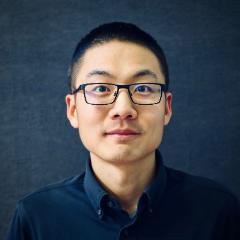Name: Dr Jiannan Yang
Title: Lecturer in Digital Engineering for Future Technologies
Email: jiannan.yang@york.ac.uk
Areas of Expertise: digital twin, dynamics and vibration, uncertainty and sensitivity, modelling
and simulation, railway noise and vibration, probabilistic engineering design
Biography
Jiannan Yang is a Lecturer in Digital Engineering at the School of Physics Engineering and
Technology (PET), University of York, UK. He obtained his first degree in Mechanical Engineering
and Automation from Donghua University, Shanghai, China. He received his PhD in Sound and
Vibration from the Institute of Sound and Vibration Research (ISVR) at the University of
Southampton in 2012, funded by the Lord Rayleigh Scholarship. After PhD, he joined Hitachi,
first worked in Japan and then in the UK from 2014. Jiannan re-joined academia towards the end
of 2018 and worked with Prof Robin Langley at the Engineering Department, University of
Cambridge as a research associate until 2023, during which time he was affiliated with Trinity
College, Cambridge.
Since 2023: School of Physics Engineering and Technology (PET), University of York
2018 to 2023: Engineering Department, University of Cambridge
2014 to 2018: European Research Laboratory, Hitachi, UK
2012 to 2014: Hitachi Research Laboratory, Hitachi, Japan
Publications
Publications information is available via the York Research Database
Research
My research journey started from modelling of wheel/track interactions and prediction of the
generated vibration and noise during my PhD research. With many years’ working in industry, I
had the first-hand experience of using computational models to simulate the dynamic behaviour
of rolling stocks, to improve the design of railway systems.
My current research interest centres on creating innovative engineering design methodologies
that integrate user needs, emerging technologies and interdisciplinary research. Why do we
need new methods? This is because the societal issues are getting more complex, and we have
to re-think about the way we approach engineering design. In particular:
How do we leverage emerging technologies, and incorporate sustainable principles in
the design process, to enable solutions that are centred around the needs of the
society?
- Can transformational advances in digital approaches to engineering design accelerate
progress towards the delivery of new technological applications? - Can the uncertainty of virtual components in virtual environments be quantified and
validated using digital twin technologies?
Digital twin can be seen as the overarching theme for developing different technologies, such as
modelling, data analytics and numerical algorithms. In particular, my research has a focus on the
following research objectives:
- Develop adaptive design process to improve the effectiveness of digital twinning
- Optimise sensor placement to improve the identifiability of the designed digital twins
- Develop new validation metrics to increase the ability to extrapolate predictions from digital twins
- Investigate both probabilistic and non-probabilistic uncertainties to improve the level of trust in digital twins for virtual prototyping
- Explore the use of dynamic visualisations to improve collaborations, communications and decision-making.
PhD enquires in the any of the above topics, and the general area of computational design,
digital twin and uncertainty quantification are welcome.

